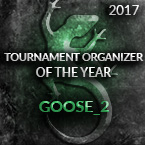"Alternative Pre-WWII Game-Set ideas for Panzer Corps 2 gameplay"
How important was Malta during World War 2?
w.quora.com/How-important-was-Malta-during-World-War-2
Rommel had personally asked Hitler to invade Malta, claiming that so long as it is in British hands, the Germans would never win in Africa. Operation Herkules was devised to invade Malta. It was considered such an important target that 70,000 Italians soldiers were to land in St, Paul,s Bay and Marsaxlokk while 29,000 Paratroopers took the main airfield at Hal Far, however the events in Crete led to the operation being cancelled last minute. It is widely accepted that without Malta the British could never have held Egypt as it both permitted the British to resupply their forces and harassed and delayed vital supplies to the Germans.
Malta was an exercise in careless disregard. While the Axis did realize the importance of the island and did attempt to force its submission through an intense blockade and aerial bombing campaign, they largely made no effort towards acquiring it. General Erwin Rommel realized early on the importance of Malta, “Without Malta the Axis will end by losing control of North Africa", making all efforts necessary towards its capture despite the OKW’s lack of interest.

Map of Axis Convoy Routes, note how Malta is situated smack dab in the middle of multiple routes. If the Axis had taken Malta, there’s no telling what they could’ve done in the Mediterranean Theater, let alone the African Theater.
The idea was that if they could bomb enough of Malta into submission, that they would either surrender or allow for Operation Herkules. Operation Herkules itself was a bold idea of a combined German-Italian landing on Malta supported by German Fallschirmjäger. Had the operation actually been undertaken, the island most likely would’ve been secured with heavy casualties and allowed for an easier resupply of the struggling Afrika Korps.
There was only one problem; Rommel was too good.

The zenith of the Axis conquests in the African Theater was reached with the Fall of Tobruk. This worked against Rommel as Hitler called off Operation Herkules, thus forcing Rommel to rely on supplies from Italy and Greece rather than a closer port at Malta. The capture of Malta would’ve provided a great base of operations to defend Italian and German shipping convoys that were keeping his forces supplied as well as hinder the reinforcement of Allied troops in turn. The capture of Tobruk however, coupled with the disaster of the Invasion of Crete, did much to persuade Hitler that the operation was needless.
The failure to enact Operation Herkules did much to hamper the progress of Rommel and the Afrika Korps in Africa, the Siege of Malta being of-cited as one of the exemplifying reasons as to why the Axis lost Africa.
If Malta had fallen, all of Africa would in-turn.
This meant that in ‘41 the Afrika Corps was busy fighting against the British when they could have been fighting in the Soviet Union instead. Better yet had the Germans achieved total control of the Middle East they could open a southern front with the Soviet Union immediately
threatening the Oil rich region of Baku.
------------------------------------------------------------------------------------------------------
World War II: Operation Pedestal - Relief of Malta
https://www.thoughtco.com/operation-ped ... ta-2360517

Following two failures to resupply the island in June, Malta's air commander, Air Vice Marshal Keith Park, a veteran of the Battle of Britain, informed London that only a few weeks of aviation fuel remained for his aircraft. Malta was a week away from total capituation or surrender from lack of food and fuel supplies. In an effort to alleviate the situation, the Admiralty began planning for a new operation to transport supplies to Malta.
As 1942 progressed, Allied forces operating from Malta proved highly effective at disrupting Axis convoys to North Africa and deprived Rommel of badly needed supplies and reinforcements. Weakened, he was badly defeated at the Second Battle of El Alamein in October-November. Driven back across North Africa, Rommel soon found himself trapped between the advancing British Eighth Army and American forces which landed as part of Operation Torch that November.













